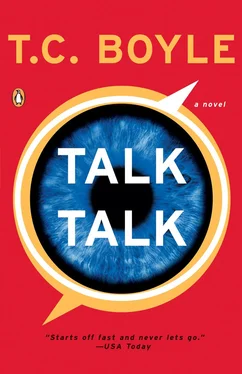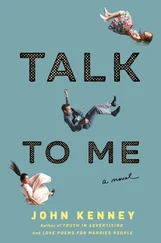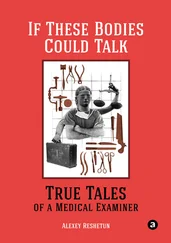“IT'S GOOD,” Bridger said, using his hands for emphasis. “I like it.” He nodded his head vigorously, chin up, chin down. His smile widened. “Really good.”
“Really?” she said, and felt the color rise to her face. “You're not just telling me that, are you?”
They were sitting in her car across from Mail Boxes Etc. in the town of Mill Valley, California, just over the Golden Gate Bridge from San Francisco. She'd never been here before, had never in fact done anything more than attach the name to a place she knew vaguely to be somewhere north of the city. It was a pleasant-enough town, she supposed, with its oaks and pines and the mountain that loomed over it, the streets that managed to seem urban and rural at the same time and the carefully cultivated small-town feel-just the sort of place a thief might want to live. Trees to hide behind. Money that spoke quietly. Anonymity.
They'd been here, in the parked car, for two hours now. The day before, they'd checked into a motel in Monterey-Bridger had insisted on taking her to the aquarium there, which she loved despite herself, sharks tapping some hidden energy source with the flick of a fin, fish floating like butterflies in the big two-story tank as if this were the Disneyland of the sea-and they'd got up early that morning and driven straight through to Mill Valley. Bridger's map, downloaded from Map-Quest, with a red star indicating the Mail Boxes franchise they were looking for, took them right to the place without fret or deviation, and if she'd expected it to look sinister, expected the criminal himself to be grinning at her from behind the copy machines, she was disappointed. The store looked no different from any other Mail Boxes Etc. There it was. People going in, people coming out.
But what to do next? Bridger wanted her to go right up to the counter and carry off an imposture, tell them she'd lost her key, show them some proof (if she wasn't Dana Halter of #31 Pacific View Court, then who was?) and see what was in the box, a bill, correspondence, a bank statement, anything that might show the residential address. Then they'd turn the tables. Then “they'd” go to “him.” She knew he was right. That was the logical thing to do, because they could sit here watching the place forever and still the guy might not show up or if he did they could miss him-all they had was a photograph, after all, and photographs offer up one version only, the version of the moment, and what if he'd grown a beard, dyed his hair? Or he might send somebody else for his mail-his wife, his daughter, his gay partner for all she knew. He could be wearing a hat, sunglasses, he could come in with a bag over his head. No, Bridger was right, but she was the one who had to go in there and break the law, not he. All her life she'd had to struggle with social situations, struggle to make herself understood while people gave her that don't-touch-me look, and what if the person behind the counter said, “What number?” “What number?” That would kill the whole thing-they'd probably call the police on her. A woman with a suspicious high bludgeoning voice trying to scam-that was the word, wasn't it? Scam? — some innocent citizen's mailbox key for what had to be a nefarious purpose. What could she say-that she'd forgotten the number of her own box? Another lie to layer it smooth: “I've been out of town and it just slipped my mind, well, because this is my second home up here, my vacation place, actually, and I, well, I don't”-“I just forgot…”
So they were sitting in the car, watching the door of the place-people coming, people going-hoping to get lucky. In the meanwhile, he'd asked her to read him what she'd been writing, because he was curious and wanted her to share it with him, and yes, he assured her, he could listen and keep his eyes on the door at the same time. And so she'd read to him and she watched his face when he told her it was good and maybe she'd flushed red, maybe she had.
“You know,” he said, “the writing's really” and she didn't catch the rest.
She leaned in close to him. “What? The writing is what?”
“Cinematic,” he said, contorting his face, his mouth, his lips, and he finger-spelled it just to be sure.
“Cinematic?” she repeated, secretly pleased. All at once, and she couldn't help herself, she saw the book as a movie, a whole parade of scenes, not the least of which featured the premiere, the red carpet, she and Bridger in tuxedos-or no, he in a tuxedo and she in a black strapless dress, or no, white, definitely white…
His face changed, his eyes sinking away from the smile. “There “was” a movie, you know. Like thirty years ago? By”-he finger-spelled it “François Truffaut. You know that, right?”
“Yes,” she said, holding his eyes, “of course. I've seen it.”
“It was called “L'Enfant Sauvage.” We saw it in film school.” He brought his hands up out of his lap, as if to use them, and then thought better of it. “And it was good, I remember. Truffaut himself played the teacher, what was his name?”
“Itard.”
“Right, Itard-but you haven't got that far yet, right? What you gave me is as far as it goes-where they find the kid wandering naked in the woods and nobody knows who he is or how he's managed to survive on his own?”
She nodded. It was easy to read him because he was her intimate, her man, and she knew his speech patterns as well as she knew her father's, her mother's-what was hard was reading strangers, especially if they talked fast or with an impediment or an accent. That was why her stomach felt light and her blood raced as if she'd just climbed a dozen flights of stairs: there was a stranger behind the counter in Mail Boxes Etc. and she was going to have to go in there and pretend to be someone she wasn't, pretend to be hearing, pretend to be entitled and maybe even cavalier. “Yes,” she signed, “that's as far as it goes.” And then, aloud: “I want to get to that part, where Itard tries to teach him to talk, to name things, to speak through an acquired language, but first I'm interested in how the child is perceived by the society around him-and how he perceives the world himself. That's the beginning. That's the groundwork.”
“He never did learn to talk, did he? I mean, after how many years of exercises like seven days a week and all that?”
“And all that.” The struggle, that was what it was about, the fight to overcome the deficit, the impairment, the loss. Itard and Victor, the Wild Child, who could barely pronounce his own name. “Five years,” she said. And then, finally, her throat constricting, she added, “No, he never did learn to speak.”
He ran a hand through his hair and it came away with a faint sheen of gel on his palm. She noticed because he raised both his hands, as if to speak in Sign-he tried for her sake, and it was more intimate, more giving, even than what they did in bed together; in that moment, she felt herself go out to him as if all her tethers had been cut. “Are you going to go to”-he paused, because he couldn't find the Sign and had to spell it out: “France? To see it. For research, I mean?”
She showed him: “Country, foreign country. Europe, European.” “Germany” “is the double eagle,” “for France you flick the wrist like this, like the flicking of a Frenchman's handkerchief out of his cuff. See? It's easy.”
His hands were in his lap. His face fell into what she liked to call his “hangdog” look, and she loved the reference, the picture it made in her mind of a dog called out on the carpet-right, on the carpet? — and the way its body collapsed under the weight of all that undisguised doggy emotion. “What?” she said. “What's wrong?”
“You didn't answer the question.”
“You mean France?”
A full minute must have gone by and neither of them had even glanced at the door across the street. His eyes were concentrated on her lips, as if he were the deaf one. “No,” she said, shaking her head slowly, back and forth, heavy as the pendulum at the bottom of the grandfather clock in her parents' front hall, the one that announced the hour to everyone but her. “I'd love to, but-”
Читать дальше












